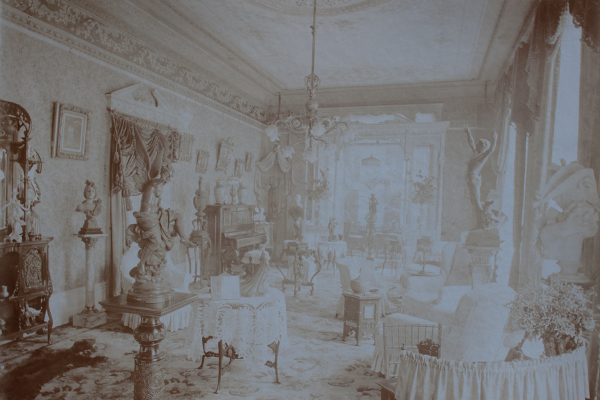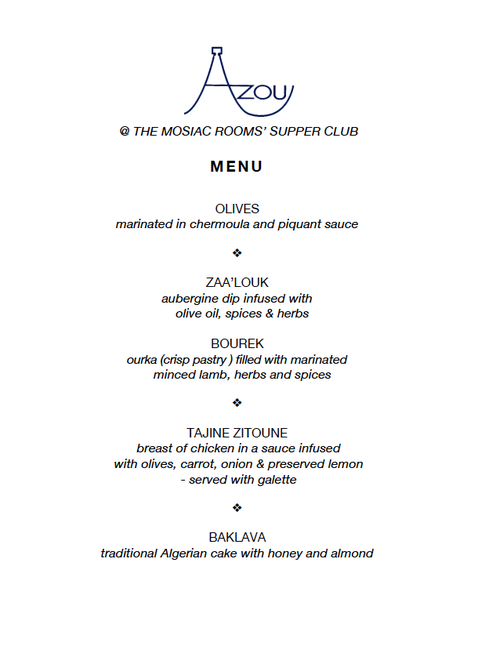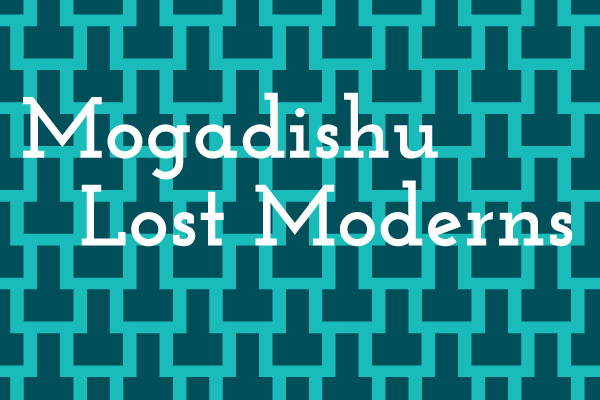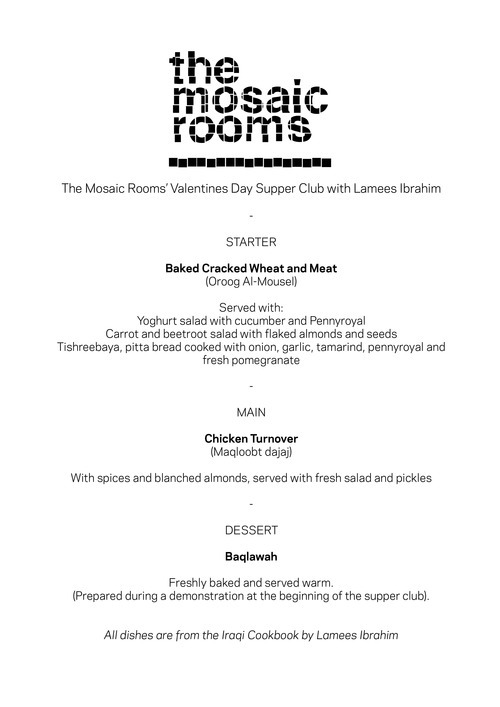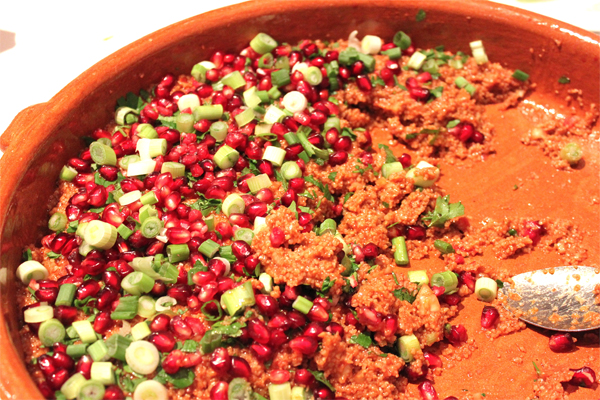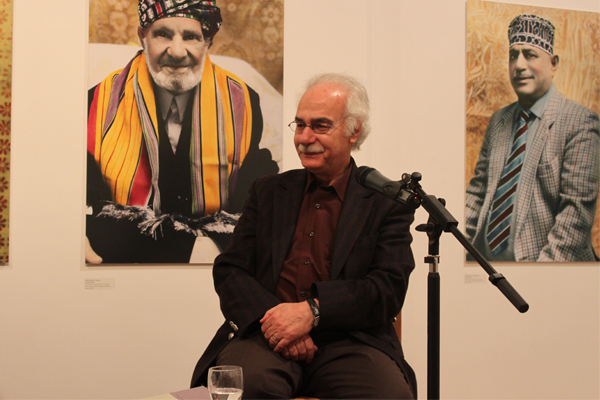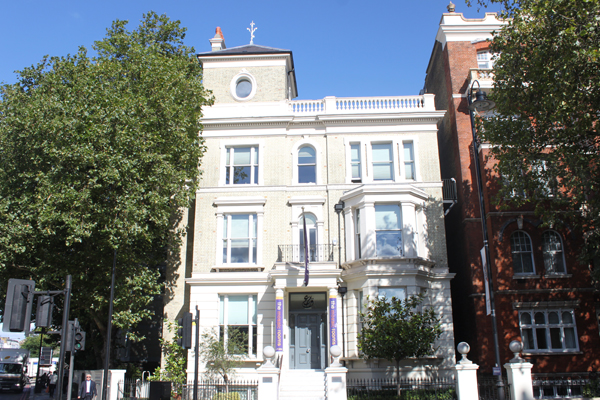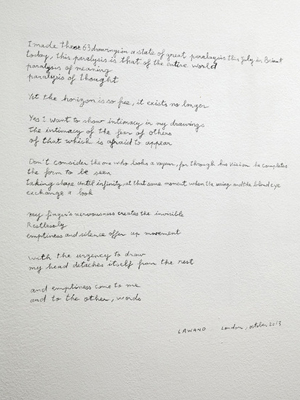The Story Behind ‘A Colour of Time’ – A new work by Nadia Kaabi-Linke
The first UK solo show by Nadia Kaabi-Linke, The Future Rewound & The Cabinet of Souls, features a number of specially commissioned works which were inspired by the history of the building which houses The Mosaic Rooms. The discovery that more than a century ago the building served as a home for Imre Kiralfy provided the starting point for our research. This led to a number of fascinating discoveries and in turn helped provide the premise for the exhibition as a reflection on the last hundred years and the structures of power that thread colonialism and capitalism.
The search for the story behind Tower House of Cromwell Road unearthed a number of fascinating and forgotten stories. With the help of curators from the Museum of London, an overlooked photo album was uncovered featuring images of the building unveiling what the rooms looked like when it served as the domicile of Imre Kiralfy. These images also revealed a wonderfully ornate ceiling mural painted in the Grand Room.
Architectural cross section examinations revealed that layers of paint from Kirafy’s time still existed.Despite the murals being lost it was discovered that the ceiling rose had been gilded and that traces of the gold still exist. This discovery directly inspired Nadia Kaabi-Linke’s new work, A Colour of Time.
During her residency at The Mosaic Rooms, Nadia Kaabi-Linke has been chipping away samples from the ceiling rose to reveal the gold leaf but also to form the pigment for this new work. A Colour of Time thus visualises the layers of time of the building’s history.
Follow us on Instagram where we will be sharing daily posts revealing the fascinating stories and images our research into the history of our building.
A Colour of Time will be on show at The Mosaic Rooms as part of Nadia Kaabi-Linke’s exhibition The Future Rewound & The Cabinet of Souls from 10 October to 29 November 2014.
Images courtesy of Museum of London and Helen Hughes.
